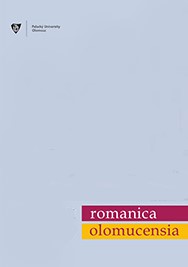Refranes famosíssimos y provechosos glosados, obra d'origen català (València, c. 1500)
Refranes famosíssimos y provechosos glosados, work of a Catalan origin (València, c. 1500)
Author(s): Maria Conca, Josep GuiaSubject(s): Language and Literature Studies, Historical Linguistics, Translation Studies, Phraseology
Published by: Univerzita Palackého v Olomouci
Keywords: wisdom literature; translation; contrastive paremiology; phraseological diachrony; historical context;
Summary/Abstract: In this paper new reasons are provided that show the Catalan origin of the work Refranes famosíssimos y provechosos glosados, printed in Burgos, in 1509 and 1515. In the field of the study of medieval wisdom texts, there has been reluctance to admit that certain Castilian works were translations of Catalan works, some of which were themselves translations from other languages, an attitude that denotes an academically inappropriate prejudice. The methodology used in this research has two aspects: a textual one, following the method of phrasal concordances, in the application of which the paremiological corpus of Refranes famosíssimos is analysed in contrast to the corpora of medieval Catalan and Castilian proverbs, and a contextual one, with documentary contributions about the author and the process of the publishing of the work, in addition to taking into consideration the pragmatic marks of the text. The results obtained show the dependence of Refranes famosíssimos on the original Catalan text, lost but of proven existence in Hernando Colom's Regestrum: Refranes en prosa catalana glosados por mosen Dimas, prevere (Barcelona 1511). It is conjectured that this work was printed in Valencia (c. 1500), taking into account the data provided about the author to whom the work is attributed, the inadvertent edition of Valencia (1523), and the woodcut of the cover, from the end of the 15th century. In conclusion, it is considered that this work meets the stated objective, through the contribution of unknown data in three aspects: linguistic, historical, and bibliographical.
Journal: Romanica Olomucensia
- Issue Year: 35/2023
- Issue No: 2
- Page Range: 251-277
- Page Count: 27
- Language: Spanish

